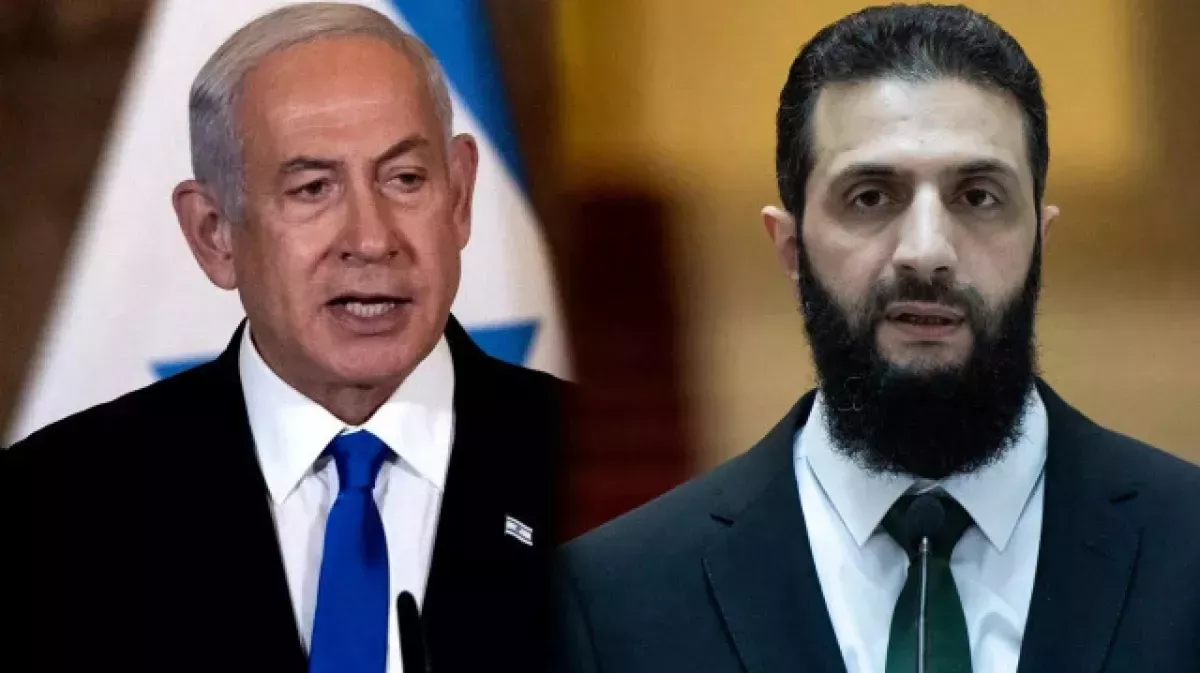Syria and Israel: a step towards reconciliation or into the abyss? Experts assess
Israel and Syria may sign a security agreement in September, Middle Eastern media report.
The reports note that the United States is actively working to organise a trilateral meeting involving Syrian President Ahmed al-Sharaa, Israeli Prime Minister Benjamin Netanyahu, and U.S. President Donald Trump. One step in this direction was the recent appointment of a new Syrian representative to the United Nations with expanded powers to conduct negotiations.

The meeting could take place on September 25 on the sidelines of the UN General Assembly in New York. The parties intend to sign a series of documents aimed at reducing tensions between Syria and Israel.
Progress has also been reported in negotiations held this week in Paris between Israel’s Minister for Strategic Affairs Ron Dermer and Syria’s Foreign Minister Assad al-Shibani.
Earlier, The Times of Israel reported that Damascus might abandon its demands for Israel to return the Golan Heights in exchange for international recognition.
How likely is full normalisation of relations between Israel and Syria in the foreseeable future? Do current regional conditions favour such a development?
Caliber.Az sought answers to these questions from prominent experts.

Israeli publicist Alexander Nepomnyashchy notes that his country is objectively interested in signing peace and security agreements with its neighbours.
“For decades, Syria has remained one of the most uncompromising and hostile states in the region toward Israel, and this confrontation has been a key factor in regional instability.
Today, the situation is changing. The new authorities in Damascus are in urgent need of legitimacy and international recognition. Signing a peace agreement with Israel could serve as an important tool for consolidating their status and strengthening domestic authority.
External players are actively encouraging this direction. The United States seeks to showcase a diplomatic success, while Gulf states — Saudi Arabia and the UAE — see such a deal as a way to enhance regional stability and limit Iran’s influence.
For Israel, this scenario opens a window of opportunity: negotiations could proceed on terms favorable to Israel. This would mean Syria abandoning claims to the Golan Heights and the Hermon area, providing security guarantees for the Druze population in southern Syria, as well as committing to border control and ceasing cooperation with forces hostile to Israel,” the expert stated.
However, in his view, the key issue lies in the new Syrian authorities’ ability to fulfill their commitments.
“The structures that were fighting just yesterday now claim the role of a political actor. The question arises: will they be able to prevent the country from slipping into a new cycle of instability and ensure the implementation of the agreements they sign?
The conclusion is as follows: the likelihood of a treaty being signed exists, and it could even be achieved on terms favorable to Israel. Yet the chances of full and long-term normalization of relations remain low. This is more likely a tactical move that benefits all parties here and now, rather than a strategic shift by Syria toward lasting peace,” Nepomnyashchy concludes.

Russian Middle East expert and Orientalist Ruslan Suleymanov, in turn, noted that the normalization of Israeli–Syrian relations is currently in a suspended state.
“Several factors and recent events are influencing this. For example, the escalation in southern Syria in As-Suwayda, in which Israel has been actively involved, carrying out direct strikes on Syrian territory. This clearly does not contribute to the normalization of relations between Damascus and Tel Aviv.
Moreover, numerous tension hotspots remain within Syria — involving the Druze and Kurds, who are under Israel’s protection. Tel Aviv has indicated that in the event of new outbreaks of violence against these minorities, it will intervene.”
“Until the authorities in Damascus resolve the issue with the Druze and, especially, the Kurds — who are supposed to integrate into the Syrian national army according to a document signed back in March of this year — problems between the neighbouring countries will not end. Yet the Syrian authorities are in no hurry to implement these agreements. Observing the situation with the Alawites and Druze, the Kurds do not consider integration possible and are demanding broader rights and autonomy for themselves. This, of course, provokes dissatisfaction in both Damascus and Ankara.
Without resolving this issue, the new Syrian authorities will be unable to move toward normalising relations with Israel, as they do not yet fully control the country’s territory. Talking about the Golan Heights at this stage is premature. I believe it is indeed a subject for negotiation, but Syrian society as a whole is not ready to make concessions to the Jewish state. Therefore, at this point, we are only discussing plans and potential scenarios, but their implementation is still a long way off,” the Middle East expert said.
He also noted that parliamentary elections are scheduled to take place in Syria this September; however, reports have already emerged that they may be cancelled due to the extremely unstable situation.
“So, in the coming months, as new negotiations are expected between the Syrian authorities and the Kurds and Druze, it will become clear to what extent the Syrian leadership actually controls the situation in the country. If they manage to reach agreements with the minorities, this could open the way for overall regional stabilization and, among other things, for the normalization of relations between Syria and Israel. Without this, I believe it is impossible to imagine the Syrian authorities moving toward rapprochement with Israel under the current circumstances,” Suleymanov concluded.








